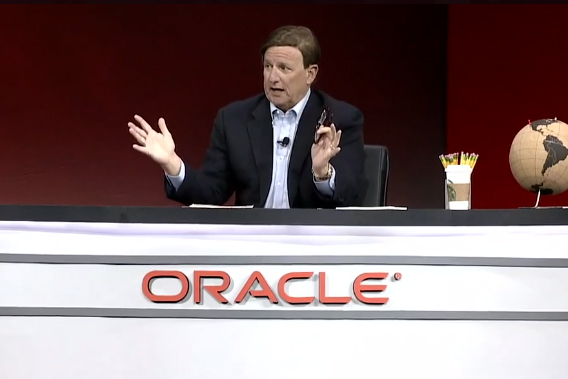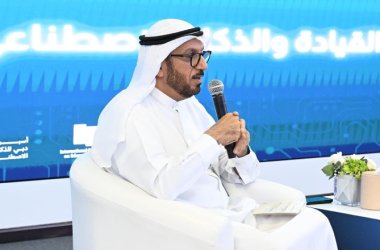The growth of artificial intelligence is so central to digital technology that by 2025 AI will be included in all cloud applications, the CEO of Oracle has predicted.

In a keynote address at Oracle OpenWorld in San Francisco, Mark Hurd also forecast that by the same year, 85 percent of interactions between companies and their customers would be automated.
“You won’t have to deal with, ‘Who are you? What’s your problem?’ again,” he said, adding that while automation would replace some jobs, it would also create new ones.
“With AI-enabled healthcare technology, as you [move] to these healthcare devices, someone will have to ensure that they are working properly.
“The majority of jobs, by the time you get to 2025, they haven’t been invented. I believe there will be more people in IT working on a different set of tasks.”
There will be new types of data professionals, robot scientists and smart city technology designers, to give a few examples.
AI changes what Hurd described as the productivity equation, freeing up employees from more mundane tasks and enabling companies to focus on functions with greater creativity or strategic significance.
“There’s a chance for us to flip what’s in the IT budgets – most of it’s maintenance – and flip these budgets into innovation,” he said.
“We see AI as a core feature that will get embedded into virtually every solution, every application. Automation will reduce the time to do tasks that are impossible for humans to do today.
“The amount of data companies have is beyond the ability of the most sophisticated data scientist to take advantage of. It’s very difficult to harness that information … not so with AI.”
Hurd made his address soon after it was announced that Oracle had acquired DataFox, a San Francisco-headquartered company with a cloud-based AI data engine that provides company-level data useful in decision-making.
The cloud market is, said Hurd, “moving faster than predicted”, with 15 percent of United States data centres having shut down last year as functions were moved over to the cloud.
Oracle has been outpaced by some competitors in the cloud, but hopes its Generation 2 Cloud and, linked to it, its Autonomous Database, will help it to close the gap to the likes of Amazon Web Services.
“Cloud is accelerating; these data centres are shifting from companies to the core cloud providers,” said Hurd.
Hurd was for five years the CEO of Hewlett-Packard and shortly, after his departure, in August 2010, from that company, was appointed Oracle president alongside Safra Catz. In 2014 Hurd and Catz became co-CEOs at Oracle.





